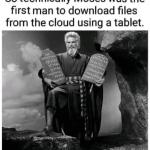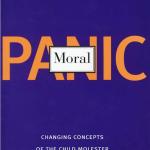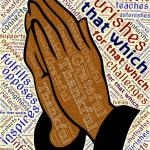In his recent book on Dostoevsky: Language, Faith, and Fiction (Making of the Christian Imagination) , Rowan Williams notes Dostoevsky’s “diagnosis of the pathology of fantasies of absolute freedom” that he likens to those of Hegel’s Phenomenology : “‘the freedom of the void’ is the dream of a liberty completely without constraint from any other, human, subhuman or divine; because it has no ‘other,’ it can also have no content. But this means that the hunger for such freedom can only manifest itself in destruction, flinging itself against existing limits; and when those limits are destroyed, it has to look around for more ‘others’ to annihilate, culminating in self-destruction.”
He cites Terry Eagleton’s Holy Terror , where the critic writes “Since limits make us what we are, the idea of absolute freedom is bound to be terroristic.”














